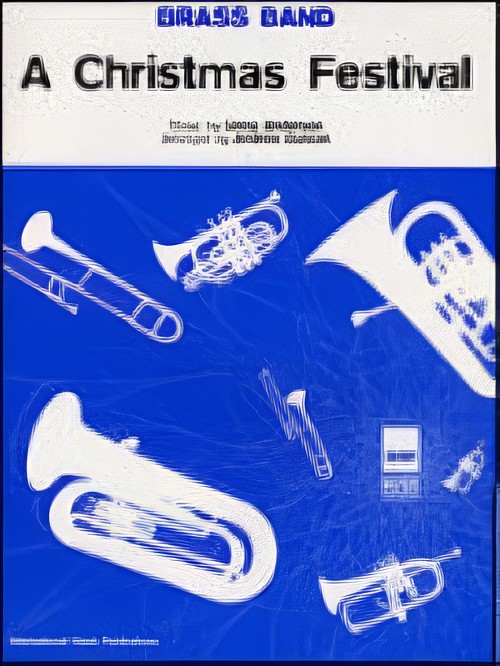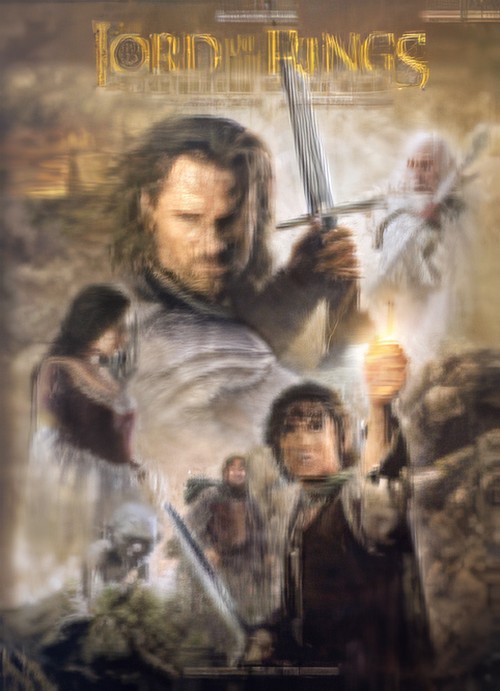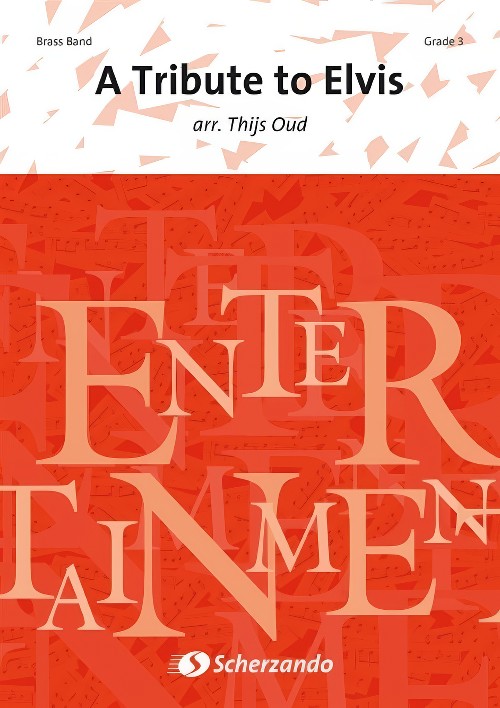Results
-
 £34.99
£34.99A Christmas Festival (Brass Band - Score and Parts) - Anderson, Leroy - Duncan, Andrew
Originally composed in 1950 for Arthur Fiedler's Boston Pops Orchestra, A Christmas Festival is the most famous Christmas medley of all. Leroy Anderson's sparkling selection includes Joy to the World, Deck the Halls, God Rest Ye Merry Gentlemen, Good King Wenceslas and Hark the Herald Angels Sing.Suitable for Advanced Youth/3rd Section Bands and aboveDuration: 7.00
Estimated dispatch 7-14 working days
-
 £40.00
£40.00Lord of the Rings: The Return of the King (Brass Band - Score and Parts) - Shore, Howard - Harper, Philip
A spectacular fantasy medley from the third and final episode of the Oscar-winning trilogy The Lord of the Rings. The most poignant and memorable themes from this magical motion picture have been arranged and assembled as a gala concert piece for brass band by Philip Harper. Bring the mystery and excitement of Middle Earth into your repertoire with this piece!Suitable for Advanced Youth/3rd Section Bands and aboveDuration: 6.00
Estimated dispatch 7-14 working days
-
 £27.99
£27.99King Cotton John Philip Sousa Arr. Joseph Knight
This classic military band march has been given a new arrangement for brass band.
Estimated dispatch 5-9 working days
-
£44.95
PSALM OF PRAISE, A (Brass Band Set) - James Curnow
Inspired by Psalm 100 and based on the hymn tune 'Praise my soul the King of Heaven', this is music of joy and exuberance, with James Curnow's very clear stamp of North American style.
Estimated dispatch 7-14 working days
-
 £56.00
£56.00 -
£60.99
You've Got A Friend - Carole King - Juri Briat
The absolute top slow number of the Eighties sung by Roberta Flack. She is not perhaps so well known among younger people, but she has her place in history as one of the absolute divas of the world. Back into time, the interlude in your concerts.
Estimated dispatch 5-14 working days
-
 £72.99
£72.99A Tribute to Elvis - Thijs Oud
Richard Strauss's Also Sprach Zarathustra is used in this great medley to introduce the King of Rock and Roll. Just imagine him walking onto the Las Vegas stage and then put your whole heart into performing three of his best known hits. An extra touch of entertainment can be added with members of your band singing the chorus to CC Rider. Everyone will love this tribute to the legendary performer.
Estimated dispatch 5-14 working days
-
 £44.95
£44.95A Psalm of Praise (Brass Band - Score and Parts) - Curnow, James
Inspired by Psalm 100 and based on the hymn tune 'Praise my soul the King of Heaven', this is music of joy and exuberance, with James Curnow's very clear stamp of North American style.
Estimated dispatch 7-14 working days
-
 £22.50
£22.50A Psalm Of Praise (Brass Band - Score only) - Curnow, James
Inspired by Psalm 100 and based on the hymn tune 'Praise my soul the King of Heaven', this is music of joy and exuberance, with James Curnow's very clear stamp of North American style.
Estimated dispatch 7-14 working days
-
 £72.99
£72.99A Tribute to Elvis (Brass Band - Score and Parts) - Oud, Thijs
Richard Strauss's Also Sprach Zarathustra is used in this great medley to introduce the King of Rock and Roll. Just imagine him walking onto the Las Vegas stage and then put your whole heart into performing three of his best known hits. An extra touch of entertainment can be added with members of your band singing the chorus to CC Rider. Everyone will love this tribute to the legendary performer.Duration: 10:30
Estimated dispatch 7-14 working days
